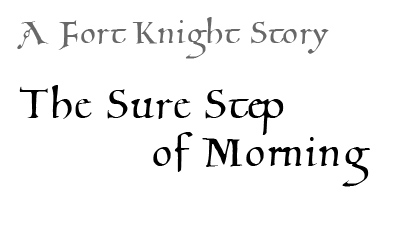
I was walking along a beach in Scotland recently, in a small village North-East of Inverness called Lossiemouth. It was early in the morning, and I was the only soul to be seen. Miles away a thousand eyes were just beginning to ease open, and I knew that soon my beach would be overrun and taken from me. But, for that moment, it was mine.
It was beautiful. Truly, it was. Heavy winds coupled with the deft hands of the tide had created a patchwork of parallel lines and undulating dunes. The beach was long, with a great bluff that ran along its banks and curves. Across each new ridge I crested lay further great hills, strewn with flora protected from the waves that crashed below.
It seemed to stretch infinitely; after an hour of walking in the same direction I could look all around me and see only the sands and the tide. The strange silhouettes of possible mountains in the distance promised that there was more than just that beach; but those promises felt flimsy, as though even the mountains could be carried away by the errant tide.
It was not easy to get to this beach. For this beach, this beach in Lossiemouth that seemed to stretch on forever and bore no souls but I that morning, was not normal. There was a shore to the village, but that I had already crossed. You see, there was a bridge from the shore, and should you walk this bridge to its inevitable conclusion you would find yourself on my beach. An unnatural bluff born of sediment and a freshwater river; somehow natural forces had seen to build two beaches, parallel and close, but bound by those same forces to never touch. It was on this seemingly impossible but irrefutably real beach that I trod, early that autumn morning.
After I had walked for what seemed like decades and which, according to my phone, had in reality been only an hour, I glanced behind myself. I wish I had not, dear reader, for what I saw was heart-breaking. I had been so very focused on cresting every new hill and hummock to see what lay beyond that I had not bothered to look behind me, and see what I had left in my wake. Where I had encountered a connected network of lines and dunes, now lay a trail of rough-hewn footprints carved in ugly peaks across a finished canvas. None other could walk the path and see as I had seen; for I had ruined this trail for all who would come later.
Glancing down I saw my tools of ruination; each step I took further into the beautiful wild-sands was taken in heavy stride, crushing what lay below me. I cursed my feet, wishing that I had not come this way.
And then I saw another. A man walked toward me, and then past me, with dog in tow. I did not consider, then, how he could have been further along the beach than I when I had made the first impressions upon the virgin sand, I simply watched him go.
Every step this man took made impressions as great as mine upon the ground, heavy craters in the soft sand. His dog, however, had a lighter step. Each of the black collie’s strides barely left an imprint; indentations of the paw that had made them. I watched as the tide-winds threw sand hither and thither across our tracks, and covered the dog’s in a moment. Slowly, I noticed, mine and the man’s imprints were being filled too. My tired mind then realised that hundreds had trod the same path I did the previous day, and yet their tracks had, like mine would, been covered by the wind.
I walked along an outcrop of sand shaped like a finger pointing out to sea to gaze out at the infinity beyond. From this finger the ocean surrounded me on three sides, with but a small spit of easily erased land behind me to return to. I determined I would return to this finger the next day, and watch the sunrise from this fortuitous position.
I did as I had promised myself the next morning. I left my bed and walked down to the beach, and from there I crossed the strange bridge and found myself on the outer beach, the beach that bore the sea.
But my finger was not there. I searched, I did, but it was not there. It was then I realised that my path was changed entirely from yesterday: the great dunes I had climbed, the valleys of sand, all were different. New hills and new valleys were in their stead, and the old were gone forever. The spit of sand had been carried away by a dying tide and washed up upon the banks elsewhere along the beach, to build some new structure instead.
I had made so many impressions, so many mistakes were carved into the sand. And not only mine; but an entire day’s worth of ruinous stride had been etched forever into the landscape, only to be washed away and remade anew in our absence.
I walked the beach again, that morning. Selfish curiosity drove me forward, and I only returned when exhaustion demanded it. Privileged to this new land, I was going to discover it; before it too was returned to the unreality of another morning.
There is a forest I like to visit sometimes, here in my home of Sussex. It was once a place of regular visitation; all manner of feet and engines would etch their mark upon its earth each new day. But those days are gone now; the engines lie idle and the feet have found new attractions. Years later my feet can still get caught in ruts, carved by vehicles long since rusted. Those too will, in time I am sure, be erased by the sure step of morning.


